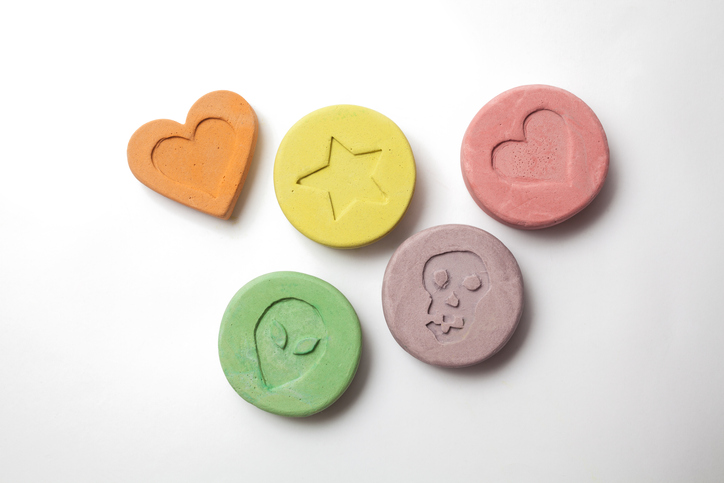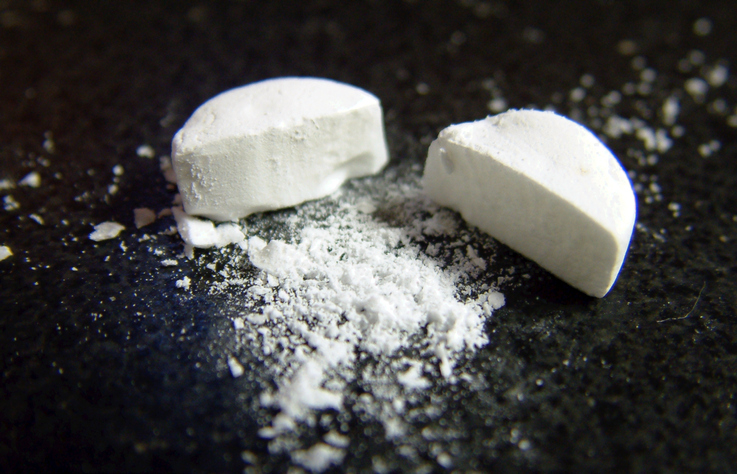It may come as a surprise that not only is making, selling, distributing or possessing illegal drugs a criminal offense in Nevada, but it is also a criminal offense to make, sell, distribute, or possess non-real/fake/imitation drugs. That’s right—if you are caught trying to sell a bag of sugar pills under the guise that it’s ecstasy, you have committed a criminal offense and face the subsequent penalties.
To break things down in more detail, take a look at NRS 453.3321. This law states that it is unlawful for a person to manufacture, distribute, sell or possess with the intent to distribute or sell an imitation controlled substance. Any violation of the above-stated verbiage is considered a misdemeanor.
If a person who is 18 years of age or older distributes or sells an imitation controlled substance to a person who is under the age of 18 years, the adult is considered guilty of a category C felony as well as may be ordered to pay restitution for any reasonable costs incurred by the minor, as related to drug rehab.
Any person who uses or possesses with the intent to use an imitation controlled substance or advertises/solicits in any matter with reasonable knowledge that the advertisement or solicitation is to promote the distribution of an imitation controlled substance is guilty of a gross misdemeanor upon the first and second convictions. Upon a third or any further conviction, that person is guilty of a category C felony.
NRS 453.332 defines “distribute” as the actual, constructive or attempted transfer, delivery or dispensing to another of an imitation controlled substance.

Drug dealers face a great incentive to sell illicit drugs in Las Vegas because:
For those reasons, imitation drugs are quite common in Las Vegas and often circulate in tourist areas or outside of nightclubs. These areas are where individuals are looking for a quick, social high and may not know how to tell the difference between a real and an imitation substance until after they’ve already ingested it; which is to say: long after the “drug” dealer has taken their money and disappeared.
The definition of an imitation controlled substance is a substance (not a controlled substance) that is shaped, marketed or colored in such a way as to lead a reasonable person to believe it is a controlled substance. In other words, it is a substance that is represented to be (i.e., sold as) a controlled substance.
Sugar pills sold as ecstasy are one example of an imitation drug. Other examples include bags of sugar and baking powder sold as cocaine, talcum powder sold as heroin, dried leaves sold as marijuana and aluminum sulfate sold as crystal meth.
It’s also important to note if an individual purchases a drug that has been cut with an imitation drug, the penalties are for the possession of the actual, illegal drug. For example, imagine that a tourist believes he is buying a bag of cocaine outside of a nightclub to have an energetic night dancing with his friend. After he and his friends snort the cocaine inside the club, they realize it is quite weak and begin to wonder if they’ve been duped. They taste the cocaine on their fingers and conclude that the bag they purchased contains more sugar than cocaine!)
Later that night, the tourist is caught with the bag of cocaine and sugar by an undercover cop dressed as a sexy club-goer. In this case, the tourist will be charged with possession of cocaine—not possession of an imitation drug.
However, if the same tourist had purchased a bag of sugar with no cocaine inside it, but the bag of sugar was purchased under the guise that it was a bag of cocaine, the tourists would be charged with possession of an imitation drug if caught.
Make sense? Any amount of an actual, controlled substance leads to a charge for possession of a controlled substance. If no controlled substance is present, but the purchaser believed it was, the charge is for possession of an imitation drug.

Attempting to defend one’s self to the police after purchasing an imitation drug can be difficult. Oftentimes, individuals use the excuse, “I didn’t know I was buying an illegal substance; I just thought I was buying… (sugar, tobacco, etc.).” However, the police may use as evidence the amount of money that the individual paid for the substance as reasonable proof that the individual was, indeed, purchasing something worth much more than their stated defense.
A common defense that a Las Vegas criminal defense attorney might make on a defendant’s behalf is that the police performed an illegal search to obtain imitation drugs. Other defenses include that the imitation drugs did not belong to the defendant or that the defendant did not know the imitation drugs were there (in the apartment, house, etc.).
A first or second offense for possessing imitation drugs for personal use or advertising (soliciting) imitation drugs is a gross misdemeanor in Nevada. This penalty carries up to 1 year in jail and/or $2,000 in fines.
Any subsequent offenses are categorized as category C felonies and carry up to 5 years in a Nevada State Prison and possibly up to $5,000 in fines.
However, if the person selling the imitation drugs is over 18 and selling to someone under 18, the penalties jump straight to the category C felony, even on the first offense. In this case, the person selling the imitation drug can be sent to prison for 5 years, charged $5,000, and even held responsible for paying for the minor’s drug rehabilitation.
The Las Vegas drug defense attorneys at Half Price Lawyers may be able to help you through your legal struggles related to possessing or selling imitation drugs. Contact our experienced attorneys today for a free consultation on your case.